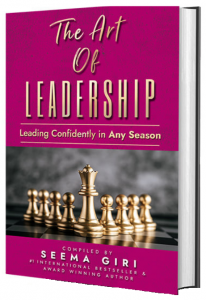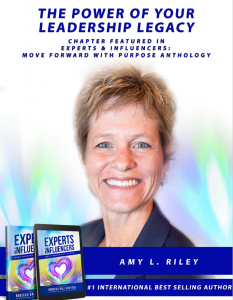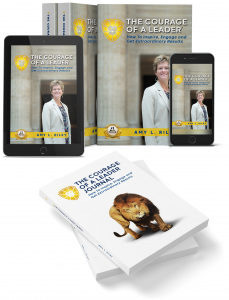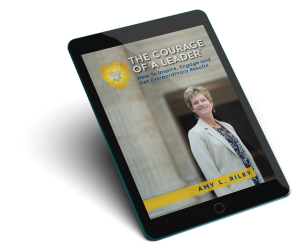There is an engagement crisis in our workplaces currently!
Elizabeth “El” Lages, Chief People and Culture Officer at Flexera, shares how strong values, intentional leadership, and accountability fuel high engagement across global teams. Join us as we hear how her approach blends communication, transparency, and people-first practices to keep culture aligned and performance strong even through acquisitions and change. We learn how regular one-on-ones, clear expectations, and open feedback loops empower employees to contribute meaningfully and speak up. El gives us practical insight into building trust, supporting leaders at all levels, and creating real ownership across the organization. We’re reminded that culture doesn’t live in a handbook, it shows up in every conversation, decision, and recognition. When leaders model values and engage their teams consistently, people feel seen, heard, and motivated to show up with purpose.
Highlights
1. Leadership Starts with Listening – Frequent check-ins and open conversations help leaders stay grounded in what their teams really need.
2. Clarity Is the Cornerstone of Accountability – When expectations are clear and consistent, people feel supported—not micromanaged.
3. Culture Lives in Daily Habits – Core values show up in actions, not posters. Recognition and transparency reinforce them.
4. Feedback Builds Trust – Employees want feedback—positive and constructive—because it drives growth and connection.
5. Support Leaders to Show Up Well – Ongoing development and real-time coaching help managers lead with clarity and confidence.
Resources Mentioned
The Inspire Your Team to Greatness assessment (the Courage Assessment)
How can you inspire our team to be more proactive, take ownership and get more done?
You demonstrate and empower The Courage of a Leader. In my nearly 3 decades of work with leaders, I’ve discovered the 11 things that leaders do – even very well-intentioned leaders do – that kill productivity.
In less than 10 minutes, find out where you’re empowering and inadvertently kills productivity, and get a custom report that will tell you step by step what you need to have your team get more done.
https://courageofaleader.com/inspireyourteam/
About the Guest:
El Lages is the Chief People and Culture Officer at Flexera. Flexera is a global company that helps organizations gain the visibility and insight they need to optimize spend, minimize risk, achieve sustainability goals, and make data-driven decisions to propel their business forward. El has been with the company since 2004, focusing on building high-performing teams and enabling a culture rooted in candor, accountability, and celebrating success. She leads with a people-first mindset and a #keepscorephilosophy – driving engagement, developing leaders, and aligning performance with purpose.
She can be reached at:
https://www.linkedin.com/in/elizabethlages/
About the Host:
Amy L. Riley is an internationally renowned speaker, author and consultant. She has over 2 decades of experience developing leaders at all levels. Her clients include Cisco Systems, Deloitte and Barclays.
As a trusted leadership coach and consultant, Amy has worked with hundreds of leaders one-on-one, and thousands more as part of a group, to fully step into their leadership, create amazing teams and achieve extraordinary results.
Amy’s most popular keynote speeches are:
- The Courage of a Leader: The Power of a Leadership Legacy
- The Courage of a Leader: Create a Competitive Advantage with Sustainable, Results-Producing Cross-System Collaboration
- The Courage of a Leader: Accelerate Trust with Your Team, Customers and Community
- The Courage of a Leader: How to Build a Happy and Successful Hybrid Team
Her new book is a #1 international best-seller and is entitled, The Courage of a Leader: How to Inspire, Engage and Get Extraordinary Results.
http://www.courageofaleader.com
https://www.linkedin.com/in/amyshoopriley
Thanks for listening!
Thanks so much for listening to our podcast! If you enjoyed this episode and think that others could benefit from listening, please share it using the social media buttons on this page.
Do you have some feedback or questions about this episode? Leave a comment in the section below!
Subscribe to the podcast
If you would like to get automatic updates of new podcast episodes, you can subscribe to the podcast on Apple Podcasts or Stitcher. You can also subscribe in your favorite podcast app.
Leave us an Apple Podcasts review
Ratings and reviews from our listeners are extremely valuable to us and greatly appreciated. They help our podcast rank higher on Apple Podcasts, which exposes our show to more awesome listeners like you. If you have a minute, please leave an honest review on Apple Podcasts.
Transcript
Employee Engagement is at a critical low, and
Amy Riley:leaders everywhere are asking how to turn the tide. In this
Amy Riley:episode, I talk with Elizabeth "El" Lages, Chief people and
Amy Riley:culture officer at Flexera, a global company known for its
Amy Riley:people first approach and high performance culture El shares
Amy Riley:practical strategies for building engagement through
Amy Riley:clear expectations, accountability that works and
Amy Riley:authentic connection, insights every leader can apply
Amy Riley:immediately. If you want to know how to inspire commitment and
Amy Riley:create a workplace where people thrive, you'll want to keep listening.
Amy Riley:Welcome to the Courage of a Leader podcast. This is where
Amy Riley:you hear real life stories of top leaders achieving
Amy Riley:extraordinary results, and you get practical advice and
Amy Riley:techniques you can immediately apply for your own success. This
Amy Riley:is where you will get inspired and take bold, courageous
Amy Riley:action. I'm so glad you can join us. I'm your host. Amy Riley,
Amy Riley:now are you ready to step into the full power of your
Amy Riley:leadership and achieve the results you care about most.
Amy Riley:Let's ignite the courage of a leader.
Amy Riley:El, thank you for being on the courage of a leader podcast
Amy Riley:today. Thanks for having me. It's nice to see you again.
Amy Riley:Yeah, it's always good to see you. We are talking about, I
Amy Riley:think, the most critical conversation that can be had in
Amy Riley:the workplace. Right now we are going to talk about, how do you
Amy Riley:create high levels of engagement across teams, across an
Amy Riley:organization? So let me start by asking you, El, how do you as
Amy Riley:the head of culture and people at Flexera. How do you think
Amy Riley:about or define high engagement?
Elizabeth Lages:So for us, high engagement has a lot of
Elizabeth Lages:components to it, and recognizing the importance of
Elizabeth Lages:regularly being in communication and creating awareness with all
Elizabeth Lages:of your employees is really important. So we look at it in
Elizabeth Lages:how we expect all of our managers and leaders to conduct
Elizabeth Lages:regular one on ones, right? So there's this constant line of
Elizabeth Lages:communication that's occurring that's an opportunity for
Elizabeth Lages:feedback. We look at this as part of performance, right in
Elizabeth Lages:that, and again, that ongoing dialog around expectation
Elizabeth Lages:setting, having clarity. We do quarterly check ins, we do
Elizabeth Lages:quarterly business reviews. We also actually leverage surveys,
Elizabeth Lages:right? We do engagement surveys twice a year when we do an
Elizabeth Lages:acquisition which we just completed, one in March, we do
Elizabeth Lages:separate we call them pulse surveys to newly acquired team
Elizabeth Lages:members, right? So we can gage and meet them where they are.
Elizabeth Lages:And that information helps us understand, where do we need to
Elizabeth Lages:focus? Where do we need to action? We just it's interesting
Elizabeth Lages:because we just finished our post survey from April. We are
Elizabeth Lages:in the process of going through the results, looking at what the
Elizabeth Lages:themes are, and I'll be talking to the entire company based on,
Elizabeth Lages:you know, what we know we're doing well, where we have
Elizabeth Lages:opportunities. And then we will share broadly with the company
Elizabeth Lages:by function, here's what's working, and here's where
Elizabeth Lages:there's opportunity to do better. And each function is
Elizabeth Lages:accountable to action something based on their survey results,
Elizabeth Lages:and we will be posting that as well, so it's very visible. Keep
Elizabeth Lages:score is a core value of ours, and so we want that
Elizabeth Lages:accountability for all of us. Again, we're not perfect, right?
Elizabeth Lages:This is constantly in motion and trying to figure out where we
Elizabeth Lages:have opportunity to get better and raise the bar performance
Elizabeth Lages:scenario that you and I have talked about is one that I'm
Elizabeth Lages:keenly focused on, but all of those things impact engagement
Elizabeth Lages:as well as regular communication points. So we do a regular all
Elizabeth Lages:hands with our CEO. We do ask me anything sessions with all of
Elizabeth Lages:our senior leadership. So we try to make sure that there are
Elizabeth Lages:monthly occurrences of some type of engagement happening all
Elizabeth Lages:across the country, around the world.
Amy Riley:Nice. Al, you have already said so much, and one
Amy Riley:thing I'm hearing loud and clear, and I think we
Amy Riley:foundationally forget this, that what is engaging is to have two
Amy Riley:way understanding that's right, right? You immediately started
Amy Riley:talking about regular communication, regular
Amy Riley:awareness. And listen, I am more engaged if I understand what the
Amy Riley:heck is going on and what we're up to and what direction we're
Amy Riley:headed and why and what. What has changed and shifted things
Amy Riley:recently. And then I also hear you making sure that you're
Amy Riley:understanding your leadership is understanding from the full
Amy Riley:employee population. Where are they at? Oh, you're part of our
Amy Riley:newly acquired members. Where are you at? How do we meet you
Amy Riley:where you're you're at. So I just like that two way
Amy Riley:understanding is so important. Agree Absolutely. So Al, you
Amy Riley:mentioned that keep score is one of your company's core values.
Amy Riley:Say more about that,
Elizabeth Lages:absolutely. When we think about our core
Elizabeth Lages:values, they're foundational, I think in terms of who we are as
Elizabeth Lages:a company and how we operate, and we try to ensure that our
Elizabeth Lages:values are instilled in everything that we do. So
Elizabeth Lages:whether that's part of our performance process, whether
Elizabeth Lages:that's part of recognition, we have a program called give,
Elizabeth Lages:allow, where we recognize performance, and the giveaway is
Elizabeth Lages:tied to someone exhibiting one of our core values. So keep
Elizabeth Lages:score. I mentioned right? We do? We expect accountability. We
Elizabeth Lages:look at metrics. We have OKRs as part of our performance and goal
Elizabeth Lages:conversations. Passion is a core value. You know, we're
Elizabeth Lages:incredibly passionate about what we do at Flexera. We have
Elizabeth Lages:employee resource groups, we have Flexera days, we have days
Elizabeth Lages:of connection. We try to have high customer impact. And we, we
Elizabeth Lages:expect our employees to show up, you know, passionate about who
Elizabeth Lages:we are, what we do, candor. This is a Jim Ryan, our Chief
Elizabeth Lages:Executive Officer. This is a special of his. We actually see
Elizabeth Lages:a lot in the survey results how much they love Jim's
Elizabeth Lages:transparency and his candid approach. And so people love it.
Elizabeth Lages:Candor creates the opportunity for feedback loops. We know from
Elizabeth Lages:our employees they want the feedback. We assume that people
Elizabeth Lages:don't want to hear anything opportunistic or perceived as
Elizabeth Lages:criticism. But the truth is, most people, especially those
Elizabeth Lages:that really aspire to continue to develop professionally, want
Elizabeth Lages:promotions. They want to understand where they have an
Elizabeth Lages:opportunity to do different, to do better. So candor is a key
Elizabeth Lages:feedback of ours, and being really transparent about what we
Elizabeth Lages:can do, what we can't give back. You know, we're really
Elizabeth Lages:fortunate. We work in tech. Most of our team members here are,
Elizabeth Lages:you know, paid at a healthy level. It starts again. You
Elizabeth Lages:know, Jim Ryan has a lot of work that he does from a charitable
Elizabeth Lages:perspective. We actually, today in the UK, we have a bunch of
Elizabeth Lages:our teams doing a three peak charitable give back that they
Elizabeth Lages:do every year. So around the world, this is something that
Elizabeth Lages:all of our team members embrace. It's organic, by the way. We
Elizabeth Lages:don't force anything. We don't say you have to do X people,
Elizabeth Lages:just they get together, they self organize and and we love
Elizabeth Lages:it. There's actually been, I won't get into it, but there's a
Elizabeth Lages:great LinkedIn post from Jim Ryan about one of our team
Elizabeth Lages:members here who donated kidney to another former team member.
Elizabeth Lages:And it's a LinkedIn post. Jim Ryan posted it. It's a Flexera.
Elizabeth Lages:You know, it's who we are. We are Flexera, that's one of our
Elizabeth Lages:tagline so I encourage people to look at that, but that's a big
Elizabeth Lages:reflection of us as a company. We celebrate success. Yeah, I
Elizabeth Lages:talked about the giveaway for our go to market folks. We do a
Elizabeth Lages:first class presidents club to recognize our our top achievers
Elizabeth Lages:in that function and professionalism, right? Our
Elizabeth Lages:culture is we have clear ethics expectations. We believe our
Elizabeth Lages:managers are we're all accountable and also important
Elizabeth Lages:that we treat each other, you know, with respect and in a
Elizabeth Lages:professional manner.
Amy Riley:Thank you. You're really expanding, for many of
Amy Riley:us, what the definition, or what all can be encompassed inside of
Amy Riley:the idea of engagement. And when you think about it, when people
Amy Riley:are professional and treat each other with respect and there's
Amy Riley:appropriate behavior that is engaging accountability,
Amy Riley:celebrating successes, getting feedback, recognition. Okay, I
Amy Riley:want to drill down onto a couple of those. But first, let me
Amy Riley:pause here, El and tell listeners a little bit more
Amy Riley:about you sure Elizabeth lodges, or El lodges, is the chief
Amy Riley:people and culture officer at Flexera. Flexera is a global
Amy Riley:company that helps organizations gain the visibility and insight
Amy Riley:they need to optimize spend, minimize risk, achieve
Amy Riley:sustainability goals and make data driven decisions to propel
Amy Riley:s been with the company since:Amy Riley:focusing on building high performing teams and enabling a
Amy Riley:culture rooted in candor, accountability and celebrating
Amy Riley:success. You've already heard her say it. She leads with the
Amy Riley:people first mindset and a keep score philosophy, driving
Amy Riley:engagement, developing leaders and aligning performance with
Amy Riley:purpose. We will share information to connect with El
Amy Riley:in the show notes. I want to talk about the concept of
Amy Riley:accountability next El. So I. Might have heard and observed
Amy Riley:leaders recently who are afraid to hold people accountable.
Amy Riley:They're worried that that will be disengaging, and I know you
Amy Riley:and I are of the mindset that accountability is engaging. Yes,
Amy Riley:tell us more about this mindset and how accountability plays out
Amy Riley:day to day,
Elizabeth Lages:absolutely so when, when I think about our
Elizabeth Lages:core values, right? If you think about keep score and you think
Elizabeth Lages:about candor, right at the end of the day, accountability helps
Elizabeth Lages:us all understand what is expected of us. You know when is
Elizabeth Lages:something to be delivered? Why, the how. And I think, you know,
Elizabeth Lages:if we have no accountability, I don't really know how you drive
Elizabeth Lages:a business forward, right? The Accountability helps us all
Elizabeth Lages:understand what's the goal post, what are we working toward, and
Elizabeth Lages:when do we want to get there by so and to your earlier point,
Elizabeth Lages:which I know this firsthand, because we've actually heard
Elizabeth Lages:this from our employees. Employee people are not afraid
Elizabeth Lages:of being held accountable. They want to be held accountable, but
Elizabeth Lages:they also want to be recognized right when they do well and when
Elizabeth Lages:they deliver, you know, ahead of schedule or they deliver
Elizabeth Lages:exceptional work, they want to be rewarded and recognized fair
Elizabeth Lages:enough, and if they deliver something and they are
Elizabeth Lages:accountable, but it misses the mark, they also want to know
Elizabeth Lages:why, and that's that's fair and reasonable as well. So I think
Elizabeth Lages:accountability is just a critical part of running a
Elizabeth Lages:successful business and and allowing each team member to
Elizabeth Lages:understand, you know, what is needed and expected of them and
Elizabeth Lages:how they're helping drive whatever that company strategy
Elizabeth Lages:is forward, you know, based on the results,
Amy Riley:yes, based on the concepts that you're sharing. L,
Amy Riley:I'm making a little diagram over here on my piece of paper, like
Amy Riley:it's okay to expect something big from me. Of course, if
Amy Riley:you've got clear expectations if I've got the information that I
Amy Riley:need about why and where and how and what my role is, and if I'm
Amy Riley:getting good feedback along the way, right? So these are my
Amy Riley:arrows going into that right? And we're celebrating and
Amy Riley:acknowledging my input and the value that I brought. So expect
Amy Riley:big things from me. Fine, if you're going to support me in
Amy Riley:that, in all the ways that you described, yes,
Elizabeth Lages:yes. And I think creating a culture and an
Elizabeth Lages:atmosphere where people also feel like they can say, you
Elizabeth Lages:know, Hey, Amy, this is a really big project. That's great, but I
Elizabeth Lages:have this other thing that you're expecting from me as
Elizabeth Lages:well. So can you help prioritize which area do I need to work on?
Elizabeth Lages:Right? So again, I think it is that expectation setting that
Elizabeth Lages:becomes really important, and allowing people to understand
Elizabeth Lages:where they need to focus is knowing that they will be held
Elizabeth Lages:accountable, right? There needs to be some exchange in in how
Elizabeth Lages:that happens
Amy Riley:now, it takes different skills, a variety of
Amy Riley:skills, from leaders, in order to be able to support team
Amy Riley:members in the way that we're describing. How do you coach
Amy Riley:leaders, support leaders so that they are there, clarifying
Amy Riley:expectations, holding people accountable, helping their teams
Amy Riley:prioritize.
Elizabeth Lages:Yeah, it's a great question, manager and
Elizabeth Lages:leader development, I think for all companies is so critically
Elizabeth Lages:important. And I think I will say, I'm going to guess, that
Elizabeth Lages:most companies feel like this is an area where you can never do
Elizabeth Lages:enough, whether it's organically external resources for us. It's
Elizabeth Lages:really grounded in on our practice. Again, I mentioned the
Elizabeth Lages:oh three that happens at every level, right? So I meet with our
Elizabeth Lages:CEO every week for 30 minutes, and that is the start of, you
Elizabeth Lages:know, he's offering me coaching and development. Well, have you
Elizabeth Lages:thought about this? Or I can go to him and say, I'm really
Elizabeth Lages:struggling with this scenario. Here's how I think I want to
Elizabeth Lages:handle it, and he'll use the opportunity to coach and guide
Elizabeth Lages:me. So it starts with that regular connection that we
Elizabeth Lages:talked about, that piece of engagement, but we also hold
Elizabeth Lages:more structured and have more formal enablement and education
Elizabeth Lages:that we do. So we have a new manager training that's rolled
Elizabeth Lages:out from my organizational excellence team. We do regular
Elizabeth Lages:flex talks. We call them for managers and leaders. We have a
Elizabeth Lages:woman who has worked with us for a while, who is the former CHRO
Elizabeth Lages:for McDonald's globally, and she has shared with us practices
Elizabeth Lages:that we talk about regularly, like the shadow of a leader. How
Elizabeth Lages:we show up has a big influence. We talk about skill Hill and
Elizabeth Lages:will. And you know, if you're having a challenge with an
Elizabeth Lages:employee, is it their skill? Is it the will of the desire, or is
Elizabeth Lages:it that they need help, right? It's too big of a hill to climb.
Elizabeth Lages:So we have certain foundational philosophies that we talk about.
Elizabeth Lages:We talk a lot about the change. Curve, because changes are
Elizabeth Lages:constant. And so we also help our leaders and managers
Elizabeth Lages:understand how change impacts all of us and how we process
Elizabeth Lages:change at different times, so that they're keenly aware and a
Elizabeth Lages:little bit more open right when we are acquiring a company, and
Elizabeth Lages:that has an impact to their team. So we really try to make
Elizabeth Lages:sure that we're regularly engaged in communicating with
Elizabeth Lages:our managers and our leaders and offering them opportunities for
Elizabeth Lages:development. We do a delegation segment. We're doing a coaching
Elizabeth Lages:segment in the second half of 25 so so we have a road map
Elizabeth Lages:specifically focused on manager and leadership development, what
Elizabeth Lages:we will cover throughout the course of the year, and trying
Elizabeth Lages:to balance that time is so precious, and, you know, and so
Elizabeth Lages:they hate when they get the invitation, because, like, I
Elizabeth Lages:don't have an hour. It's like, we try to, we're trying to learn
Elizabeth Lages:more about how to deliver impact and bite sized pieces. But I
Elizabeth Lages:think, you know, it goes back to everything that that we've been
Elizabeth Lages:talking about, and like you said, Amy, it's that engagement
Elizabeth Lages:and that regular two way dialog becomes important, and also
Elizabeth Lages:learning. You know, the survey results again, you know we saw
Elizabeth Lages:from our director level and above, you know, they're feeling
Elizabeth Lages:like there's a little bit too much process right now, they're
Elizabeth Lages:feeling a little stretched thin. We've done back to back
Elizabeth Lages:acquisitions that's given us the clarity to say, alright, this is
Elizabeth Lages:good information. How do we help them be successful? How do we
Elizabeth Lages:take this information and think about, you know, we're going to
Elizabeth Lages:incorporate days of no meetings to free people up, right so
Elizabeth Lages:listening to what we're being told, and we can't action
Elizabeth Lages:everything. And there are certain things that people want
Elizabeth Lages:that just are never going to happen, right? We're never going
Elizabeth Lages:to give 10% raises. It's not happening. But there is, there
Elizabeth Lages:are nuggets of information, like understanding those high level
Elizabeth Lages:themes, where it creates an opportunity for us to say, Okay,
Elizabeth Lages:we need to really listen and pay attention.
Amy Riley:Yes, I'm so glad that you started with what, oh,
Amy Riley:three, the one on ones, yes, one on one. Sorry, yeah, no, I knew
Amy Riley:what you meant from our conversations. How important it
Amy Riley:I mean, sometimes people gets really fancy about leadership,
Amy Riley:but listen, just talk with your team members once a week, find
Amy Riley:out what's going on. I mean, what you're because I want to
Amy Riley:break this down into what are some things that every leader
Amy Riley:listening can do that you don't have to be the chief culture or
Amy Riley:people officer in order to make this kind of difference. Ask
Amy Riley:people, ask for their feedback, right? If your company doesn't
Amy Riley:have an employee engagement survey, fine. Gather your own
Amy Riley:data and act on it. Recognize that when there's a change going
Amy Riley:on, you often, as a leader, are getting that information. You've
Amy Riley:gotta process it ahead of time. You gotta figure out how you're
Amy Riley:gonna own it, and then make sure you're giving that space and
Amy Riley:that time to bring people along, what conversations are they
Amy Riley:going to need to have in order to get there?
Elizabeth Lages:So yeah, I think you nailed it at a very
Elizabeth Lages:baseline. It is that one on one every week. It is ensuring that
Elizabeth Lages:you are giving feedback. It is asking them, where are they how
Elizabeth Lages:are they right? Do they have clarity of expectation? And it's
Elizabeth Lages:being, you know, really engaged and present on a regular basis,
Elizabeth Lages:and not assuming that they know what you mean, not assuming that
Elizabeth Lages:someone automatically is reading your mind, that you expect them
Elizabeth Lages:to deliver this by Friday, when you just said, Hey, can you get
Elizabeth Lages:that done? Yeah, so, so I think at just a baseline level, it
Elizabeth Lages:really and it doesn't have to be fancy, it doesn't like I said,
Elizabeth Lages:it doesn't have to bring in external consultants. At a very
Elizabeth Lages:fundamental level, it's that one on one, and even having a one on
Elizabeth Lages:one at a skip level, so you understand that another level of
Elizabeth Lages:what's happening, and it's it's the clarity of expectations,
Elizabeth Lages:it's candid feedback, and it's really using that in a manner
Elizabeth Lages:that creates opportunity for dialog and conversation.
Amy Riley:I'm thinking, as you're talking El, about how
Amy Riley:powerful your organizational values are, that there is that
Amy Riley:permission, that invitation for everybody to keep score, to be
Amy Riley:candid with one another, right? So when you're a leader and
Amy Riley:you're rolling something out, and you put those expectations
Amy Riley:on a dashboard very visibly, and that's all out there. And I know
Amy Riley:as your team member, I'm expected to do A, B and C by x
Amy Riley:date, right? Then we're just keeping score. This is how we
Amy Riley:drive things forward, right? And then when I'm falling behind, we
Amy Riley:could talk about why that is. Is what's getting in my way?
Elizabeth Lages:Yes, yes, exactly. I think for us, the
Elizabeth Lages:core values, you know, most companies have some level of
Elizabeth Lages:values, and they are genuinely, authentically like part of how
Elizabeth Lages:we roll. And like how we roll are essentially our core values.
Elizabeth Lages:That's how we think about it. And they really do show up in
Elizabeth Lages:how we operate our business. And I think, you know, one of the
Elizabeth Lages:most impactful aspects of it is it does start with your chief
Elizabeth Lages:leaders, right? Like, you know, our chief executive officer, he
Elizabeth Lages:lives these and it's that shadow of a leader notion, right? So
Elizabeth Lages:every employee at every level sees that. They see that. I I
Elizabeth Lages:hope they're seeing it in me, right? So, so I think as we're
Elizabeth Lages:all showing up, and that's what really makes it stick and become
Elizabeth Lages:part of of who you are as a company, and, you know, part of
Elizabeth Lages:your culture,
Amy Riley:yeah, shadow of a leader, the responsibility for
Amy Riley:all of us it is. They're watching you every moment, not
Amy Riley:just when you're being fully intentional about it, but every
Amy Riley:time you walk into a room, every time you join that Zoom or that
Amy Riley:teams meeting, how are you showing up? They are watching.
Amy Riley:So I want to ask you one final question. L So let's say that
Amy Riley:there is a listener out there, and they're like, Huh? I don't
Amy Riley:know that I have been engaging my team in this way, right? I
Amy Riley:haven't fully been holding them accountable. I don't know that I
Amy Riley:have been making the expectations completely clear.
Amy Riley:Where would you suggest that they start?
Elizabeth Lages:It's a great question. We actually went
Elizabeth Lages:through this exercise when I stepped into this role, I think
Elizabeth Lages:was about eight years ago. Jim and I have followed which much
Elizabeth Lages:of our philosophy comes from. It's called Manager Tools, and
Elizabeth Lages:they actually have podcasts, and it really is at the front of it,
Elizabeth Lages:you meet with your team or your team member, and you say, hey, I
Elizabeth Lages:want to make sure we have a better connection, and I want to
Elizabeth Lages:do a better job of making sure I'm clear with you. So here's
Elizabeth Lages:what I'd love to do. I want to start implementing 30 minutes
Elizabeth Lages:every week where we sit down. We can spend 10 minutes talking
Elizabeth Lages:about whatever you want. We'll spend 10 minutes talking about,
Elizabeth Lages:you know, what may be relevant to the business, and 10 minutes
Elizabeth Lages:on if you know, if there are other projects, initiatives, or
Elizabeth Lages:perhaps a career discussion, right? So we're going to spend
Elizabeth Lages:that 30 minutes together, and then I'm going to be clear with
Elizabeth Lages:you going forward on what I think the key things for us to
Elizabeth Lages:be working on, so that you know what I need from you to be
Elizabeth Lages:successful. And I'm also opening that door so that you know this
Elizabeth Lages:is a safe space. Please ask me questions. If I'm giving you
Elizabeth Lages:something that's unreasonable, let's talk about why, and you
Elizabeth Lages:just start
Amy Riley:there. I like it. I like it. Al, I was wondering
Amy Riley:whether you would start with the suggest that folks start with
Amy Riley:the Oh threes. But I like also how you broke that down. If
Amy Riley:that's a new practice for a leader, your oh three also has
Amy Riley:three components, right?
Unknown:Connect person,
Amy Riley:connect about the work, and then connect about
Amy Riley:career and development or or their interests. That's right.
Amy Riley:So that can give folks that are not in a regular practice of
Amy Riley:having those kinds of conversations a process and a
Amy Riley:flow to
Elizabeth Lages:follow. That's right? One thing I will add to
Elizabeth Lages:that is those one on ones or threes, as we call them, they
Elizabeth Lages:create the pathway right, to build rapport, to establish
Elizabeth Lages:trust, and that's when you can get to a point of more easily
Elizabeth Lages:giving feedback, right? And by the way, over 95% of feedback is
Elizabeth Lages:positive, right? It's saying you did that really well. Let me be
Elizabeth Lages:specific. When you did this, it created that, and that was an
Elizabeth Lages:excellent end result, but it creates that trust where you can
Elizabeth Lages:also then give someone opportunistic or constructive
Elizabeth Lages:feedback to say there are opportunities, maybe you could
Elizabeth Lages:have done it this way and had a different outcome, and help
Elizabeth Lages:people with professional growth and development, but it's it's
Elizabeth Lages:those one on ones that start to create that foundation.
Amy Riley:I agree, I love, that the connection that you're
Amy Riley:creating and the positive feedback that you give gives
Amy Riley:that permission for you to have what might be tougher
Amy Riley:conversations, right? A really candid conversation, yes, El,
Amy Riley:thank you for everything that you shared with us on the
Amy Riley:podcast today. So delighted to spend this time with you.
Elizabeth Lages:Thank you so great to see you again, and I'm
Elizabeth Lages:pleasure to be here. So thank you for
Amy Riley:having me. Thank you. Thank you for listening to the
Amy Riley:courage of a leader podcast. If you'd like to further explore
Amy Riley:this episode's topic, please reach out to me through the
Amy Riley:courage of a leader website at WWW dot courage of a leader.com
Amy Riley:I'd love to hear from you. Please take the time to leave a
Amy Riley:review on I. ITunes that helps us expand our reach and get more
Amy Riley:people fully stepping into their leadership potential. Until next
Amy Riley:time, be bold and be brave, because you've got the courage
Amy Riley:of a leader you.


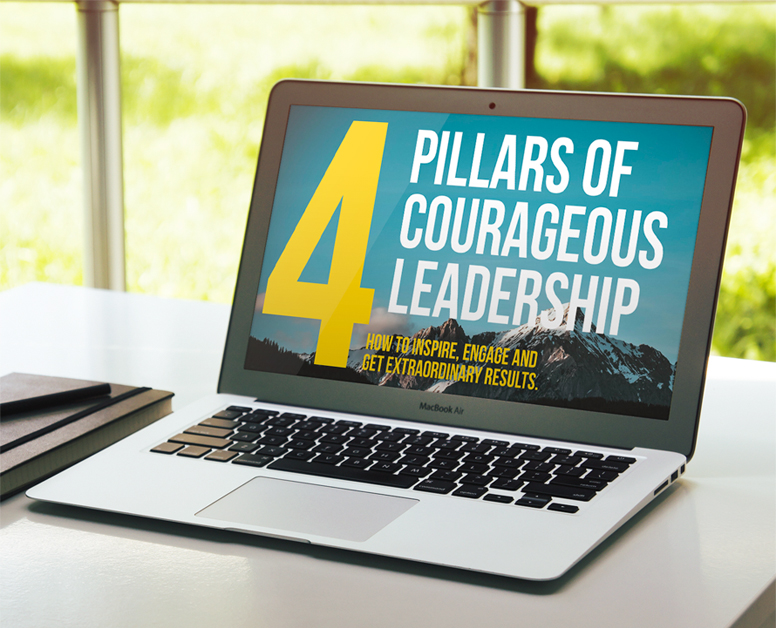 A Summary of The Courage of a Leader® 4 Pillars
A Summary of The Courage of a Leader® 4 Pillars